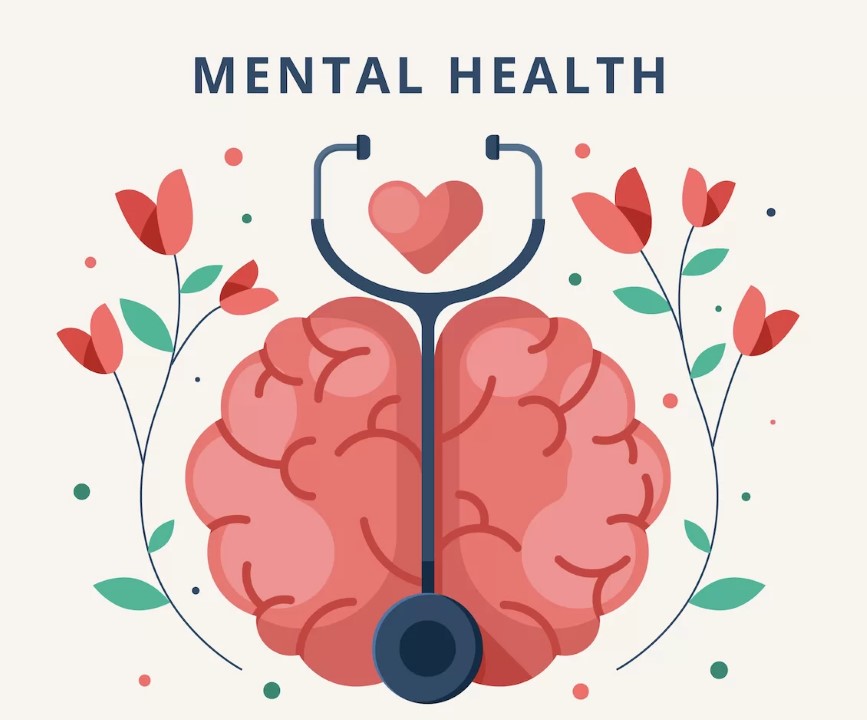

What Makes You Mentally Healthy
Mental health isn’t merely the absence of a diagnosable illness or condition—it’s far more layered than that. It reflects the way you perceive yourself, how you manage life’s daily hurdles, and the way you interact with the world around you. In essence, your mental well-being shapes your thoughts, your emotions, and your actions on a regular basis. It determines how you handle stress, how you rise from failure, how you connect with others, and how gracefully you rebound from life’s inevitable challenges.
The Presence of Strength, Not the Absence of Illness
Being in a good state mentally or emotionally doesn’t just mean you're free of conditions like anxiety, depression, or psychological disorders. In fact, mental wellness isn’t about what’s missing—it's about what’s present. It’s about emotional strength, resilience, compassion, clarity, and the ability to maintain balance even when life tilts.
For decades, especially in places like the United States, defining mental illness has been a more straightforward task than trying to define what mental health truly looks like. Since as early as 1917, when it operated under a much longer name, the American Psychiatric Association has played a leading role in categorizing mental disorders. But the question of what makes someone mentally well—that's still evolving.
More recently, the conversation has begun to shift. Experts and organizations now agree that being mentally healthy isn't simply about not having a diagnosis. It's become increasingly clear that many people who show no clinical symptoms still vary in their levels of mental wellness. Some cope gracefully, while others struggle—even in the absence of any formal diagnosis.
What Mental Health Really Means
According to the World Health Organization, mental health isn't defined by a lack of mental illness—it’s about thriving, not just surviving. It's about being in a state of inner balance where one can handle life’s regular stressors, maintain productive routines, and build meaningful relationships. A mentally healthy person can tap into their strengths, contribute positively to society, and find fulfillment in everyday living.

Key Traits of Sound Mental Health
Mental health spans more than just how we feel—it encompasses how we process thoughts, how we behave, and how we navigate the world emotionally and socially. Several major qualities and factors shape our mental wellness.
Overall Life Contentment
One of the clearest indicators of mental wellness is a person’s general enjoyment of life. This is often referred to as life satisfaction. It’s not about being happy all the time—rather, it’s about feeling a sense of purpose and fulfillment across the most meaningful parts of one’s existence.
Certain components consistently show up in studies on life satisfaction. These include having vibrant personal connections, participating in meaningful work or leisure activities, experiencing a sense of pride in one’s achievements, feeling healthy, and enjoying a strong sense of autonomy and hope. When people feel they belong, have a direction, and are at peace with themselves, their mental health thrives.
Emotional Resilience and Recovery
Another key aspect of mental strength is the ability to recover from difficult situations—a quality known as resilience. Resilient people don’t just survive hardship; they often find ways to grow from it. They view challenges as temporary and manageable rather than as overwhelming threats. They tend to seek support when needed, believe in their own capacity to handle adversity, and come out stronger on the other side.
Those with high resilience aren't immune to pain or struggle, but their perspective empowers them. They're more likely to approach problems with a proactive mindset and lean on healthy coping strategies when times get tough.
Meaningful Social Connection
Strong mental health doesn’t exist in isolation—quite literally. Social support plays an enormous role in maintaining well-being. Isolation and loneliness have been linked to a staggering range of health problems, both physical and psychological. From cardiovascular issues to memory decline, from substance misuse to depression—lack of connection can deeply erode a person’s vitality.
Major life changes like moving to a new city, transitioning jobs, or experiencing a breakup can all disrupt these social networks, leading to increased emotional strain. However, studies suggest that the number of friends one has is less important than the quality of those connections. Deep, trusting, supportive relationships are what truly matter.
Flexibility in Emotion and Thought
Mental wellness also requires a certain degree of inner adaptability. People who hold rigid expectations—for themselves, others, or life in general—often set themselves up for disappointment. Emotional and psychological flexibility is crucial. This means not just thinking flexibly, but also allowing oneself to feel the full spectrum of human emotions—joy, anger, sadness, fear—without shame or suppression.
Some people try to shut out feelings they consider “inappropriate” or “unacceptable,” but bottling up emotions only compounds stress. Research shows that people who are more emotionally agile are often better at adapting to life’s unpredictable flow. Flexibility helps them find balance and resilience when things don't go as planned.

What Threatens Our Mental Health?
Mental health is not something we can take for granted—it can be strengthened, but it can also be compromised. According to the National Alliance on Mental Illness (NAMI), roughly one in five adults in the U.S. experiences a mental health condition each year. That’s a staggering statistic, and it highlights just how crucial it is to understand the risk factors.
Many elements can negatively impact one’s mental well-being, including:
-
Discrimination or marginalization
-
Exposure to traumatic events
-
A family history of mental illness
-
Chronic illness or medical issues
-
Limited financial resources
-
Poor access to healthcare or support systems
-
Low self-worth
-
Difficulty forming social bonds
-
Ongoing inequality or societal pressure
-
Drug or alcohol misuse
On the flip side, certain protective factors help shield individuals from mental decline. These include having trusted friends or family, developing strong coping strategies, participating in community life, and living in an environment that feels safe—both emotionally and physically.
How to Protect and Improve Your Mental Health
Mental well-being, like physical health, requires regular attention and proactive care. Fortunately, there are proven ways to boost and maintain a healthy state of mind. The U.S. Department of Health and Human Services offers several strategies to help strengthen mental wellness and build psychological resilience.
Helpful Practices for Mental Strength
-
Keep your body moving – Regular physical activity isn’t just good for your muscles—it’s deeply beneficial for your mind. Exercise reduces anxiety, improves mood, and boosts overall emotional stability.
-
Prioritize sleep – Getting enough restful sleep each night is crucial for emotional regulation, memory processing, and stress management.
-
Support others – Acts of kindness and service to others can create a sense of connection and purpose, both of which nourish your own emotional health.
-
Learn to manage stress – Building coping tools like deep breathing, meditation, journaling, or even simple distraction techniques helps you navigate stressful moments with more ease.
-
Stay socially connected – Maintaining close contact with friends, family, or community members can create emotional buffers against loneliness and depression.
-
Maintain a balanced perspective – While life has ups and downs, making an effort to stay optimistic, or at least realistic, can help you ride the emotional waves more effectively.
And just as importantly—know when to reach out for help. If you’re struggling, you don’t need to face it alone. Talking to a doctor or licensed mental health professional can make a tremendous difference. Seeking help is not a weakness—it’s a wise and courageous decision.

Understanding the Qualities of a Mentally Healthy Individual
What does a mentally healthy person look like in everyday life? While mental wellness isn’t a fixed checklist, there are certain traits and behaviors that typically show up in those who are psychologically well-balanced. These signs don't mean perfection—they simply reflect an individual who is managing life’s demands in a stable, adaptive, and thoughtful way.
-
Adaptability – They’re able to shift gears and adjust to new or unexpected life circumstances without becoming destabilized.
-
Sense of self-worth – They recognize their own value and feel that their existence carries meaning and importance, even in times of doubt.
-
Independent problem-solving – Instead of always leaning on others, they usually rely on their own reasoning and decision-making abilities to find solutions.
-
Secure within groups – A mentally healthy person often feels safe and grounded in social settings. They’re able to understand the emotions and perspectives of others with empathy.
-
Personal responsibility – They take ownership of their actions, decisions, and duties without shifting blame or avoiding accountability.
-
Capacity to love and be loved – They are emotionally open and able to give affection, as well as receive it, without excessive fear or guardedness.
-
Grounded in reality – Rather than escaping into fantasy or denial, they face life as it is, with a firm grip on what’s real and what isn’t.
-
Emotional maturity – They show composure even under stress, handle disappointments with perspective, and don’t easily fall apart when things go wrong.
-
Balanced lifestyle – Their life includes a thoughtful mix of work, rest, relationships, and play. They find joy in multiple aspects of life, not just one domain.
The Broader Picture of Mental Health
Health isn't confined to just the body—true health encompasses the mind and emotions, too. The modern understanding of wellness embraces this idea, recognizing that a person’s emotional and mental state is just as essential as their physical condition.
As one definition puts it, “Health is a state of being hale, sound, or whole in body, mind, or soul.” This means being in alignment—your thoughts, emotions, and actions all working in concert toward a meaningful life.
Humans are complex beings, made up of intertwined physical and psychological systems. You can’t treat one without affecting the other. In this integrated view, a mentally healthy person is someone whose inner experiences and outer behaviors are relatively aligned and balanced.
They aren't immune to struggle, but they navigate life with awareness and intentionality. Their emotional life isn’t chaotic; it follows a rhythm shaped by understanding, experience, and reflection.
Mental Health Is a Living, Shifting State
It’s important to understand that mental health isn’t static. It’s a living, changing quality of life—what might feel strong today may fluctuate tomorrow depending on stress, trauma, or even small life events.
When we describe someone as mentally healthy, we’re talking about their current capacity to meet life’s demands within their own personal limits and strengths. That capacity evolves and can be cultivated over time.
To live mentally well is not simply to be free from mental illness; it is to possess a quality of life where thoughts, emotions, behaviors, and desires are oriented in harmony. It means striving to live in alignment with your values, connecting meaningfully with others, and responding to life’s challenges with emotional flexibility and grounded self-awareness.
In many ways, the definition of a mentally healthy person is a dynamic portrait. It includes traits like responsibility, decision-making, resilience, emotional insight, and social awareness—but ultimately, it reflects the ongoing, day-to-day process of learning how to live well in a complex, ever-changing world.




